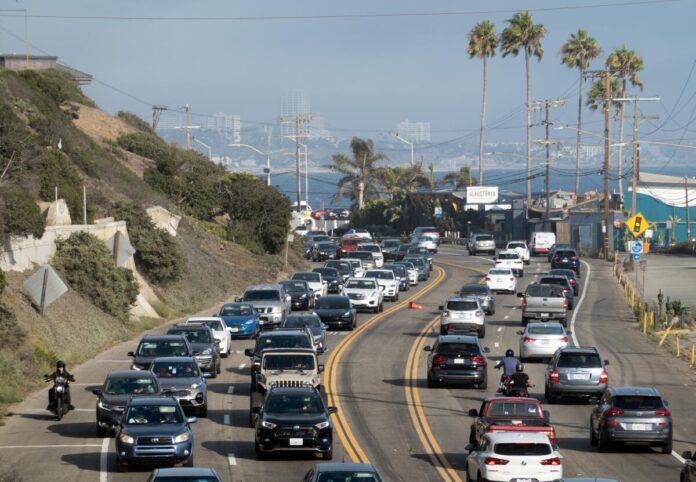The U.S. Senate on Thursday voted to overturn California’s landmark plan to phase out gasoline-only vehicles by 2035, a regulation already adopted by 11 other states representing about one-third of the U.S. auto market.
The measure, now headed to President Donald Trump, seeks to repeal a waiver granted by the Environmental Protection Agency (EPA) under former President Joe Biden, which allows California to require at least 80% of new vehicle sales to be electric by 2035.
The vote marks a significant victory for major automakers, including General Motors (GM) and Toyota, who have heavily lobbied against the mandate. It deals a setback to California and environmental advocates who argue the rules are critical for reducing pollution and accelerating the transition to cleaner transportation.
California initially announced its plan in 2020, setting a goal for 80% electric vehicles and up to 20% plug-in hybrids in new car sales by 2035. Since 1967, the state has received over 75 waivers under the Clean Air Act, allowing it to enforce stricter emissions standards than the federal government.
Despite advice from Senate parliamentarians and a Government Accountability Office ruling that the waivers cannot be repealed under the Congressional Review Act, Senate Republicans pushed forward with the measure.
The Alliance for Automotive Innovation, representing automakers such as GM, Toyota, Volkswagen, Hyundai, and Stellantis, applauded the vote. CEO John Bozzella criticized the mandates as “never achievable,” adding that automakers would have to divert capital to purchasing compliance credits from Tesla instead of investing in EV development.
Environmental groups condemned the decision. Abigail Dillen, president of Earthjustice, called the vote a step backward, emphasizing the global shift toward electric vehicles is irreversible.
GM welcomed the Senate action, stating it “aligns emissions standards with today’s market realities.”
In a related vote, the Senate also moved to rescind the EPA’s 2023 approval of California’s zero-emission heavy-duty truck requirements, continuing a broader push to roll back aggressive EV policies.
On the legislative front, the U.S. House of Representatives passed a bill on Thursday that would end the $7,500 federal tax credit for new EVs, impose a $250 annual fee on EV owners to fund road repairs, and repeal emissions rules designed to encourage EV production. The bill also aims to phase out EV battery production tax credits by 2028.
If upheld by the courts, these rollbacks could enable automakers to delay or scale back electric vehicle production, especially in states adopting California’s stringent standards. California’s current rules mandate that 35% of light-duty vehicles sold in the 2026 model year be zero-emission.
Automakers argue this target is unattainable given current EV sales levels, which remain below 10% in several states, prompting delays in compliance from Vermont and Maryland.
This Senate vote represents a critical moment in the ongoing debate over the future of electric vehicles in the U.S. auto industry and government policy.




